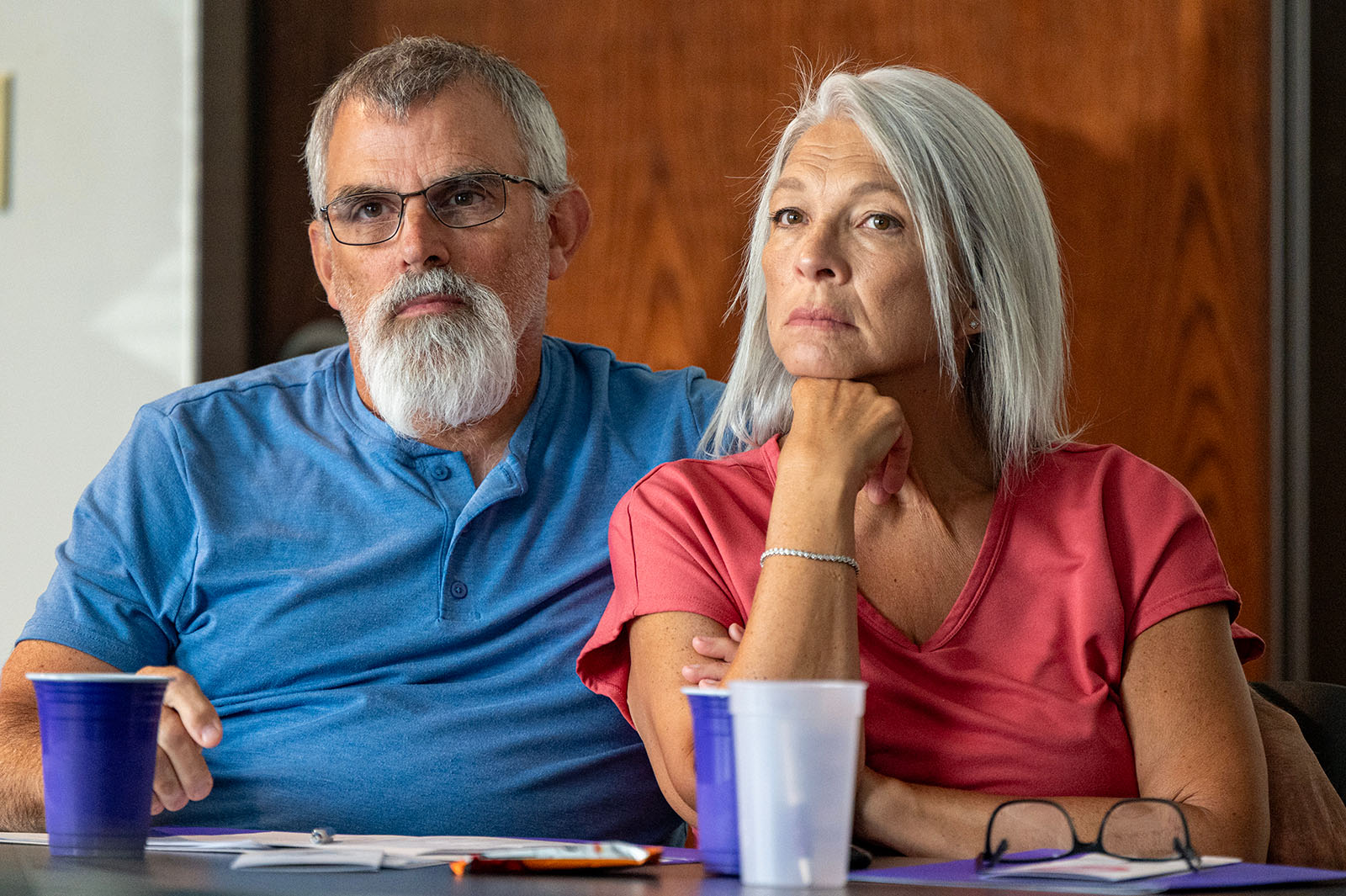Part of a series on domestic violence in Springfield and Greene County.
- Related story: What you can do to help
- Need help? See related story
Lisa Saylor is a woman of strong Christian faith.
So when her pastor counseled her several years ago to submit to her then-husband and abuser, be a better wife and work harder to make the children mind, this is what she believed she was being told:
“It was my fault. I should do better. And it plunged me back under the waters and caused me to stay longer.”
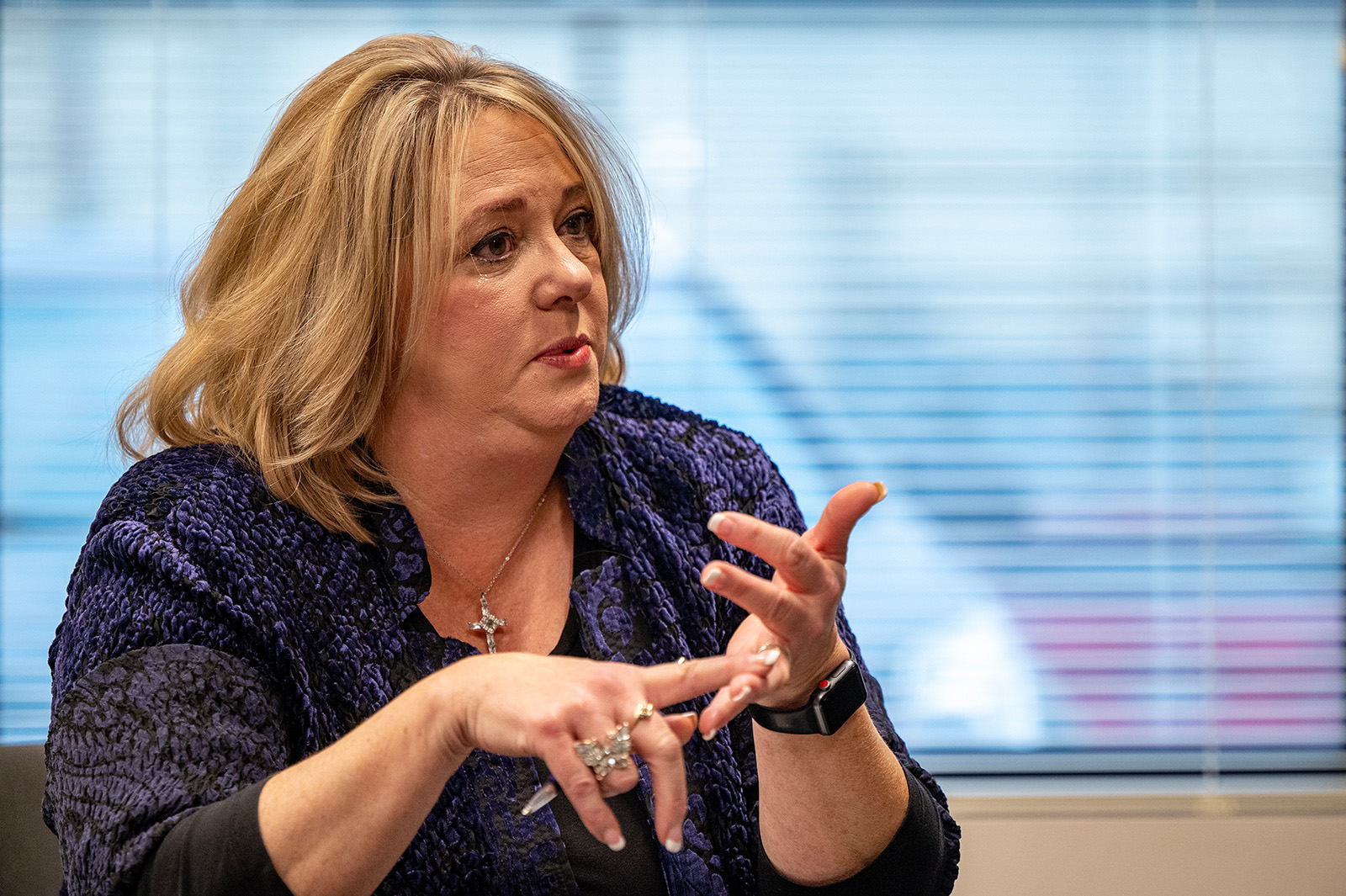
Saylor eventually left the abusive relationship, although her ex stalked her for years. Today, Saylor is a vocal advocate for victims and for changes that could reduce domestic violence.
Among those changes, she’d like to see better training for clergy on how to recognize the signs of domestic abuse — both physical and emotional — and how to support victims within their congregations.
“Yes, the Bible does say and talk about submission,” she said. “But the verse before that says your husband is to love you the way Christ loves the church. And I don’t think Christ went around beating the church.
“I tell people who don’t agree with me, ‘If the God you serve tells you to stay and be beat, then by all means stay and be beat,’” Saylor said. “But the God I serve said this was not for me.”
Survivor: Ex recited Bible verses and begged forgiveness
Janice Thompson, a survivor of domestic violence, said her ex-husband and abuser used religion to control her and to justify the abuse. She recalled how her ex would bounce from church to church and could quote scripture to her.
“Greg (her ex) knows the Bible,” Thompson said. “He will drop to his knees and pray and say, ‘I’m so sorry for all I’ve done. Please forgive me.’”
And then he’d say to others, “‘Look, she won’t forgive me. She’s the problem.’”
Thompson recalled a time her ex insisted they seek couples counseling with their pastor.
“I was still sitting there with bruises on my body and he’s begging me to go sit down with his pastor so that we can talk about this,” she said. “I’m there by myself with these two other people trying to convince me that I need to forgive him.”
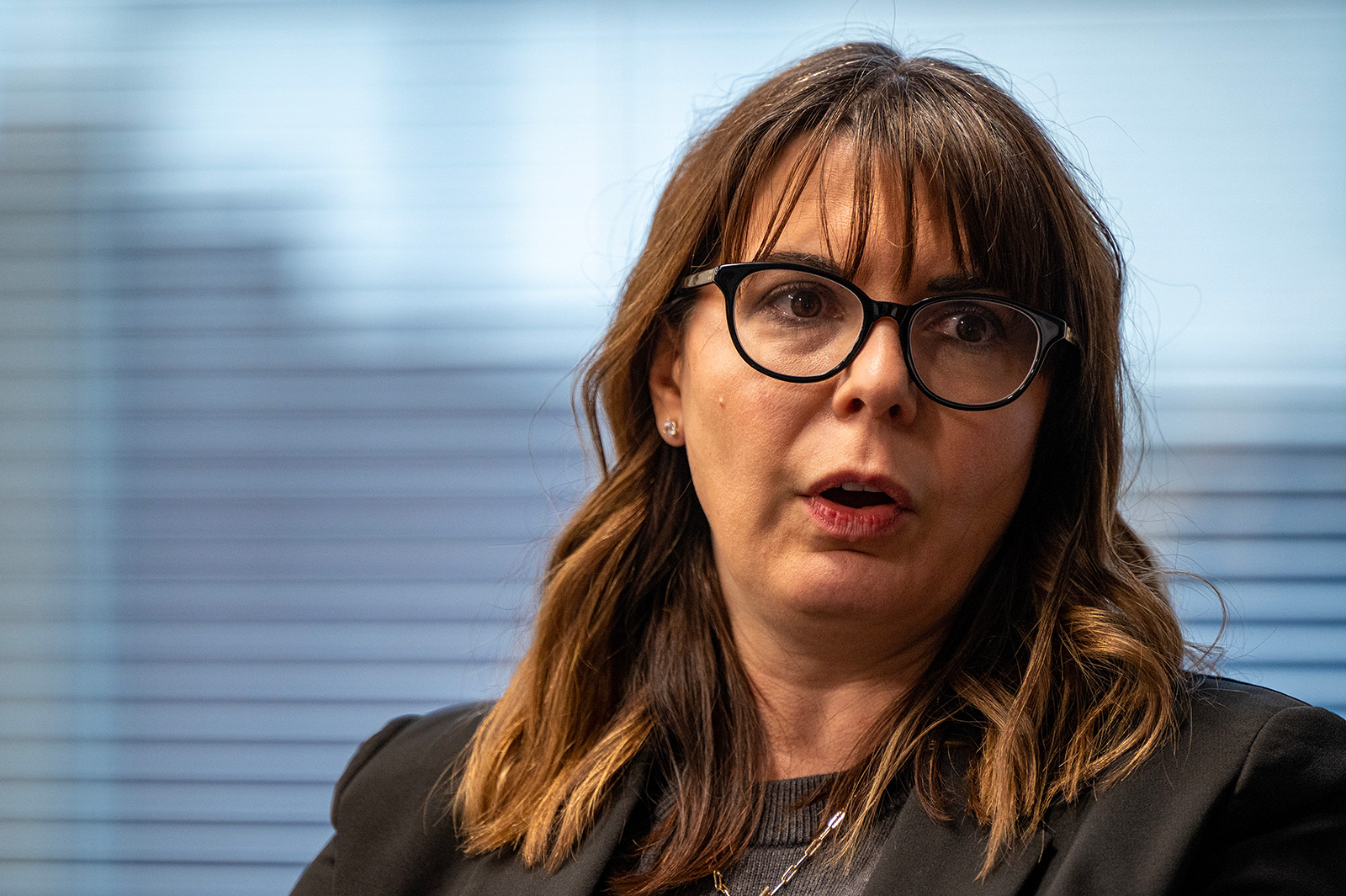
Jamie Willis, director of the Greene County Family Justice Center, said religious beliefs often play a role in how couples respond to domestic violence. That’s why it’s important that faith leaders are trained to know the signs of abuse.
“Faith leaders are in a tough situation,” Willis said, “because whenever someone comes to you, they’re not going to say, ‘I’m in a domestic violence situation and my husband is doing terrible things to me behind closed doors.’
“They’re going to come forward and say, ‘We’re having issues in our relationship and he’s always mad. I can’t do anything right.’” Willis said. “Faith leaders need better tools in their toolbox to be able to kind of dissect what’s happening whenever people from their congregation come forward with concerns about marital issues.”
Clergy need to evaluate the power balance in the relationship, Willis said.
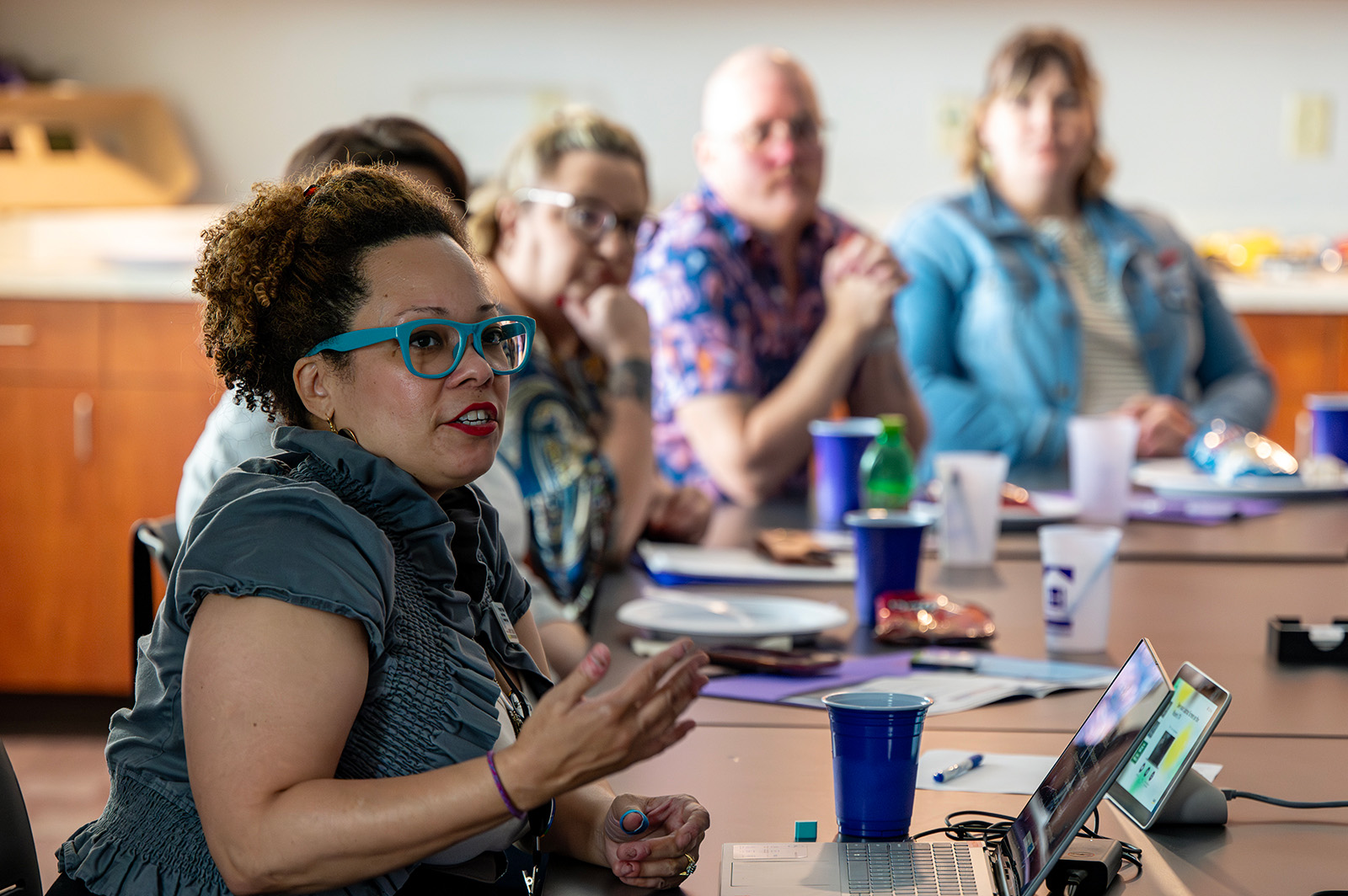
Wife often told to pray for her abuser
Charity Jordan, prevention education coordinator at Harmony House, said it’s important for faith leaders to understand why saying things like, “Let’s pray for your abuser,” aren’t helpful.
“Those kinds of harmful cultural norms come into play,” Jordan said. “It can be common in the faith community that the brunt of the responsibility for dealing with a domestic violence situation is put on the woman.
“She’ll be told to pray harder (to) God to help her be a better wife. Maybe she needs to be more subservient. Maybe she needs to do whatever to appease her abuser,” Jordan said.
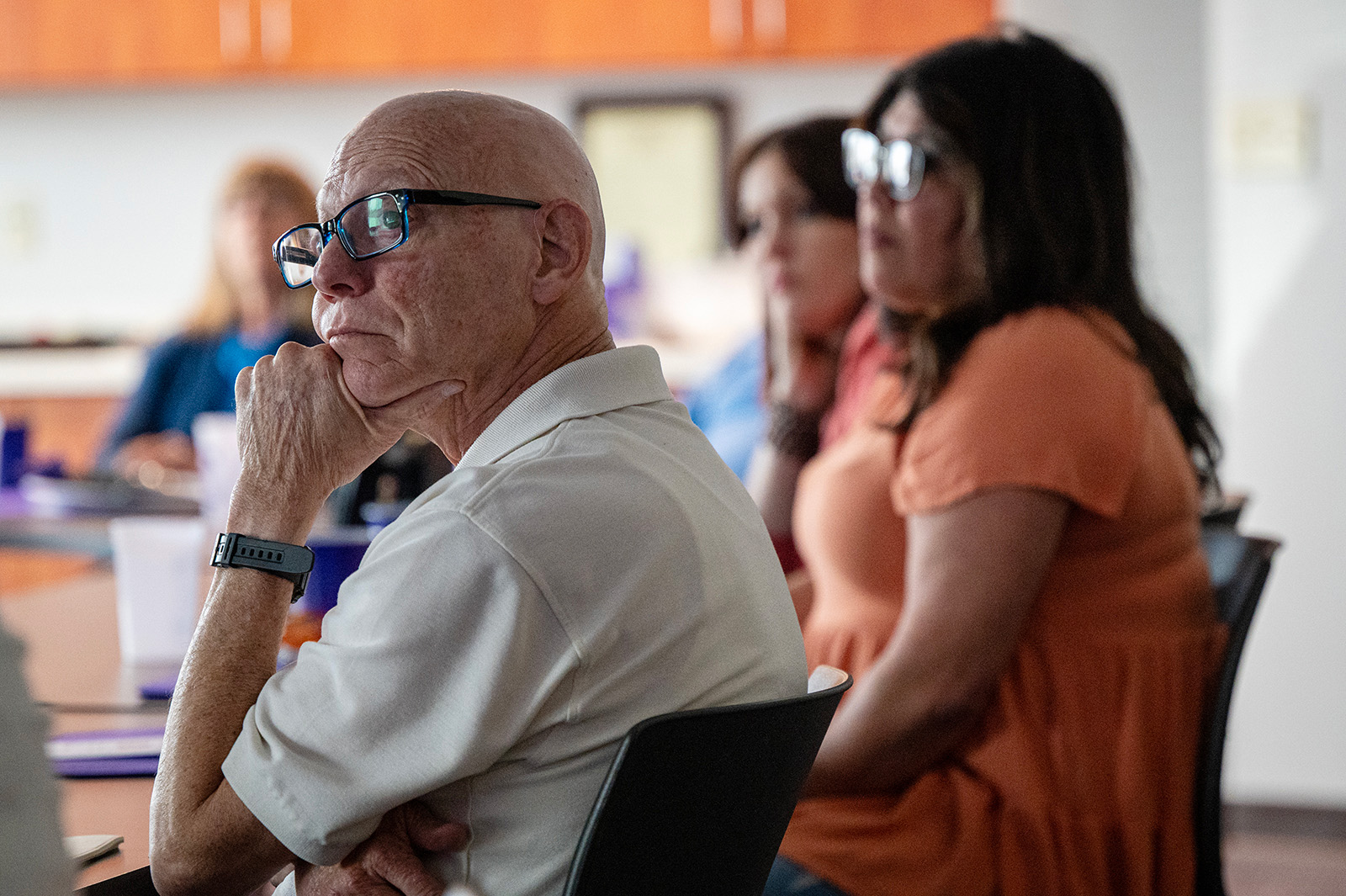
“Well-meaning faith leaders might try and do some couples counseling and bring in that survivor and the abusive partner together. And that is just not helpful in any way. Neither is it safe for that survivor.
“We want the faith community to understand that, unfortunately, the answer to domestic violence is not prayer,” Jordan continued. “What that survivor needs is support and they need people who understand what’s going on. And if it’s resources, they need to be connected to a safety plan.”
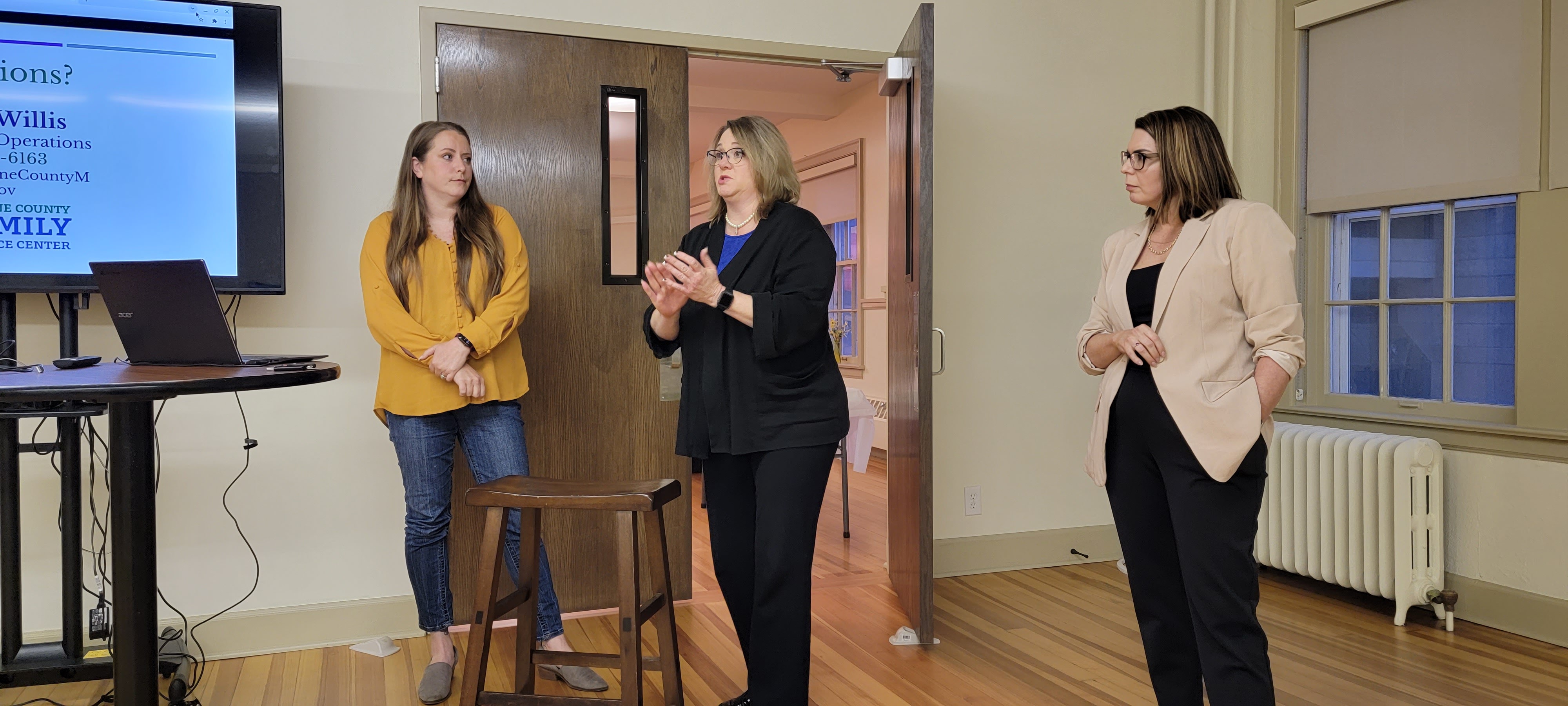
Willis, Thompson and Saylor presented to a small group of pastors last spring, explaining the dynamics of domestic violence and offered to make themselves available to educate more faith leaders, perhaps even bringing the message to local seminaries and Bible colleges.
Willis said no one ever reached out after that presentation or responded to her follow-up emails.
No matter — Willis and Jordan are taking another approach.
They teamed with Abigail Cool, chief executive officer at Women's Medical Respite, to organize a series of lunch-and-learn events for faith leaders.
“It’s going to be a time for us to kind of share with those faith leaders: here’s what domestic violence looks like,” Jordan said. She called it Domestic Violence 101.
The goal is “helping them understand how to respond to people that may be sitting in their pews, how to respond and support their congregants.”
Attendees will be encouraged to attend the Stop the Violence Conference this fall at Missouri State University because there will be special training and professional development for faith leaders provided by Called to Peace Ministries.
It provides support and education to churches seeking to provide a compassionate, Christ-centered response to those impacted by control and oppression.
Faith leaders invited to attend
Faith leaders interested in attending a lunch-and-learn event related to domestic violence should email charityj@myharmonyhouse.org.
